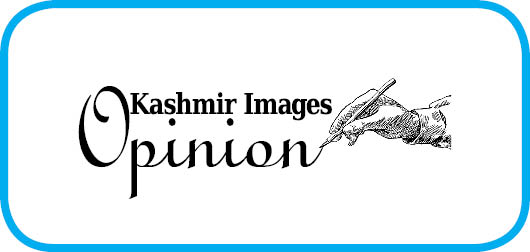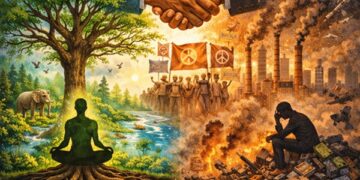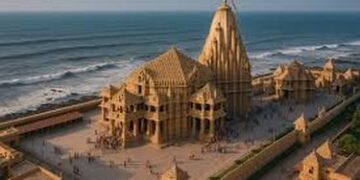By: Dr. Ashaq Hussain
As with many words used in the holy Quran, the word Zakah also has many layers of meanings. Zakah is one of the five pillars of Islam and one of the basic foundations of the religion. It is a practice assessed once a year and is obligated upon those Muslims, men and women, who possess means enough to distribute a certain calculated percentage to the poor and needy. The word Zakah means both ‘purification’ and ‘growth’.Zakah in Arabic is more specific than the term Sadaqah, which is voluntary and implies alms-giving in general. It reflects the idea that giving in charity is a form of purification and cleansing. Our possessions are purified by setting aside a proportion for those in need.
This same concept is reflective of hair that grows healthier after a trim, and a plant that is pruned and cut in order for it to re-grow and develop. In Islamic terminology, Zakah is the amount of money that every adult, mentally stable, free, and financially able Muslim, male and female, has to pay to support specific categories of people defined in Surah at-Tauba (9) verse 60: as “The alms are only for the poor, and the needy and those employed to collect the funds; and to attract the hearts of those who have been inclined towards Islam; and to free the captives; and for those in debt; and for those struggling for the cause of God, and for the wayfarer (a traveler who is cut off from everything); a duty imposed by God”.
Thus the payment of Zakah is obligatory as it is one of the five pillars of Islam. Zakah is the major economic means for establishing social justice and leading the Muslim society to prosperity and security”. Thus we can see that Zakah is a command enjoined upon the Muslims by Allah and as such it is a form of worship. In fact it is worship of such a high and commendable standard that in the Quran it is frequently coupled with prayer. Prayer is an act of worship through words and action, while Zakah is an act of worship involving wealth. Muslims down the centuries have agreed upon the obligatory nature of paying Zakah for gold and silver, and for other kinds of currency as an obligatory duty, the third of the five pillars of Islam.
Zakah becomes mandatory when two conditions are simultaneously satisfied: Nisab and/ or due date. Nisab is the quantity or limit of money or things in one’s possession above which one needs to give Zakah. Zakah is obligatory when the Nisab has been attained to, or when one’s possessions exceed the specified Nisab. The specified Nisab (or minimum amount) of gold and golden currency is approximately 85 grams of pure gold. The Nisab of silver and silver currency is 200 dirhams, which is approximately 595 grams of pure silver. The Nisab of other kinds of money and currency is to be scaled to that of present price of gold, 85 grams of pure gold. This means that the Nisab of money is the price of 85 grams of 999-type (pure) gold, on the day when Zakah is paid.
Zakah is due after one lunar (Hijri) year starting from either the first day one acquires the amount of Nisab or the arrival of the date when one paid Zakah the previous year. Zakah is obligatory after a time span of one lunar year passes with the money in the control of its owner. Then the owner needs to pay 2.5% (or 1/40) of the money as Zakah. The owner should deduct any amount of money he or she borrowed from others; then check if the rest reaches the necessary Nisab, and then pays Zakah for it, if Zakah is due from him. Prescribed originally as a voluntary act of love, Zakah evolved into an obligatory tax on property, including money, cattle, corn, fruit and merchandise to support the poor among the community. So much is the importance of zakat in Islam that it has been mentioned at eighty two places in the Qur’an in close connection with prayer.
Another form of Zakah is Zakat al-Fitrwhich isdifferent from the obligatory Zakat. Zakat al-Fitr was made obligatory in the second year of the Hijrah. It is understood that Allah, the Exalted, has instituted Zakat al-Fitr to purify one’s fast from the negative consequences of vain talk and of vain actions which one might have made during the fasting month of Ramadan. It was also institutionalized with the objective of helping the poor and the needy and to save them the embarrassment of asking for assistance on the Day of Eid. The poor may, thus, celebrate the joy of Eid along with the rich.
Zakat-ul-Fiter is due at the end of the month of Ramadan. It must be paid by every Muslim. “The messenger of Allah imposed Zakat al-Fitr of Ramadan as a Saa’ of dates or a Saa’ of barley, on every Muslim, slave and free, male or female, young or old.” (Bukhari& Muslim) Zakat al-Fitr is due on every Muslim who is in possession of food over and above his family’s needs for one day and night. Every free Muslim m is supposed to pay Zakat al-Fitr for himself, his wife, children and servants. It is to be given before the Eid prayer. It is permissible, however, to give it out a day or two before the Eid day. If a person delays it until after the day of Eid for no valid reason, it would be considered as Sadaqah and not as Zakat al-Fitr. The recipients of Zakat al-Fitr are the same as the recipients of the obligatory Zakat. The quantity of Zakat al-Fitr must be given out in kind, i.e., wheat, barley, dates, raisins, rice, maize and the like, the best of which is what benefits the poor most.
Nowadays, people consider obligatory Zakah as being merely a special act associated with Ramadan like Zakat-al-Fitr and the fast. Indeed, many Muslims even equate the obligatory Zakah to the Zakat-al-Fitr of Ramadan. Thus, they pay it only in this month. However, this is against Islamic teachings and the Prophet’s Sunnah. Zakah must be paid as, and when, one’s wealth in cash or in kind reaches the threshold of Nisab. Thus, Zakah is an obligatory duty that must be fulfilled well in time like Salah and it is prohibited to delay its payment. Many Muslims of this age are unconscious of this obligation and most of them refrain from paying Zakah in time even while knowing its importance and position in Islam.
In short to conclude with for a layman beyond the religious perspective, Zakah has both humanitarian and socio-political value. It is designed by our Creator to redistribute wealth and encourage social responsibility. When Zakah is collected and distributed correctly it minimizes the needs of citizens to such an extent that there may be no poor or needy within the Muslim community. It has been reported and documented that at certain times in Islamic history no person, of any religion, who lived in the Islamic Empire qualified to receive Zakah.
The writer is Assistant Professor (Selection Grade) At Govt. Degree College Chatroo and can be reached at joinchemistry@gmail.com






